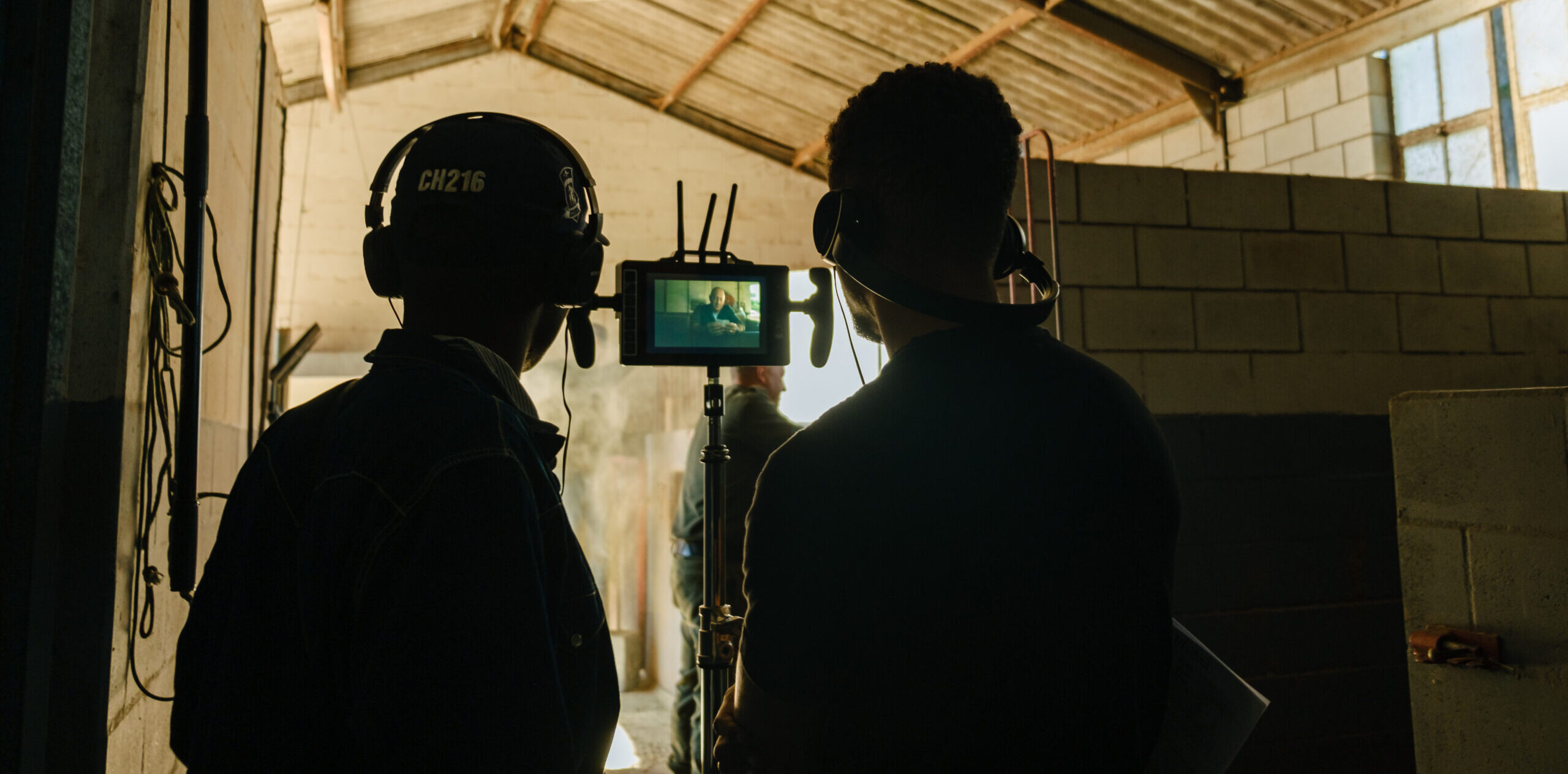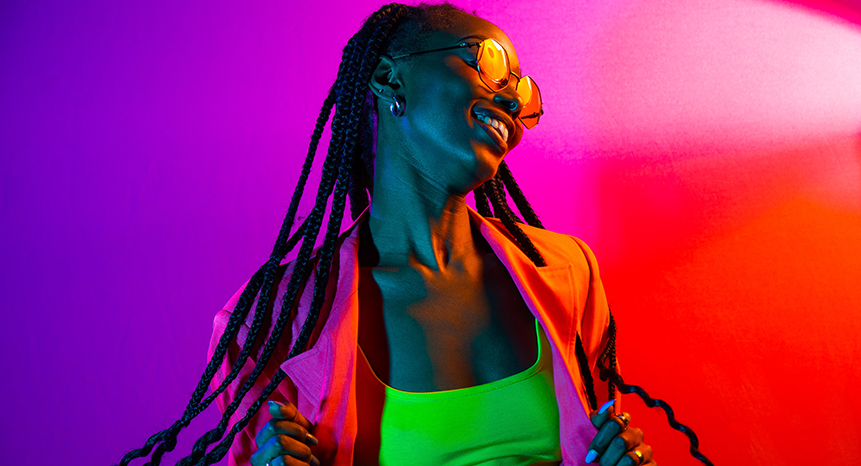Every now and then, a new voice in film makes you stop and pay attention. That’s what happened when Adam quietly dropped on Showmax and started climbing the charts.
At 10and5, we’re always on the lookout for fresh perspectives. Enter Liyema Speelman and Winford Collings, two rising filmmakers who’ve just released their debut, Adam. Still in their twenties, they pitched the idea to Showmax last year in response to a call for first-time filmmakers. They didn’t expect much to come of it but Showmax took a chance, and now we have this personal, powerful film, which at the time of this interview had climbed to #7 on the most-watched list in South Africa.
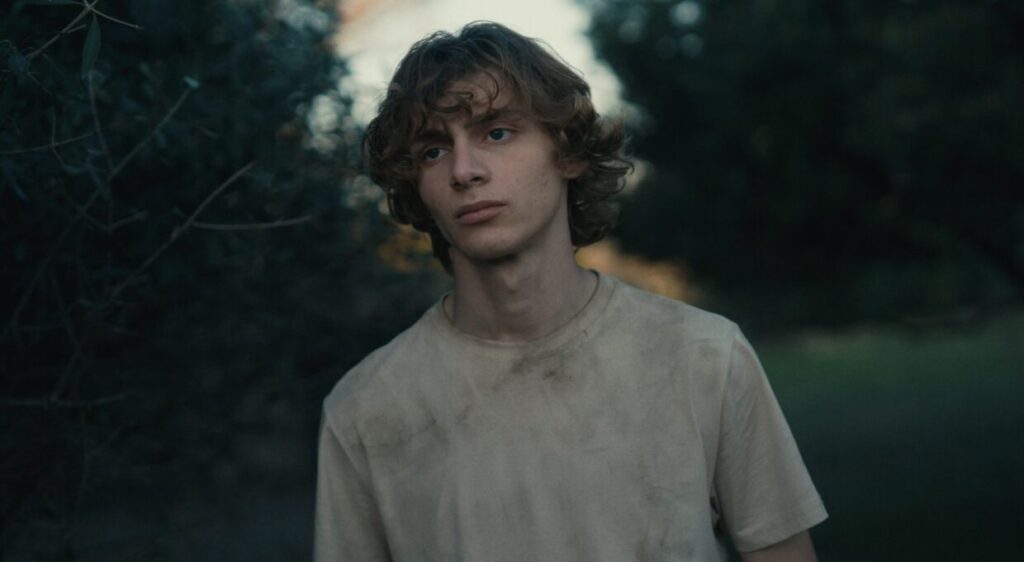
Adam tells the story of a young boy navigating the unspoken codes of masculinity in a place that doesn’t make room for vulnerability. It’s a slow burn. Full of silences, tenderness, and the kind of tension that’s hard to name. Shot in both Afrikaans and English, the film leans into long pauses, quiet discomfort, and the emotional undercurrent of mothers in a masculine world. The cast includes Marko Vorster, Dirk Stoltz, Inge Beckmann, Antoinette Louw, Dillon Windvogel, and Paul Strydom.
In this exclusive interview, we caught up with Liyema and Winford to talk about making space for softness in harsh environments, why they chose to write the script in Afrikaans, what it means to create stories that sit in the in-between, and how young creatives often have to build spaces for themselves, often without a blueprint.
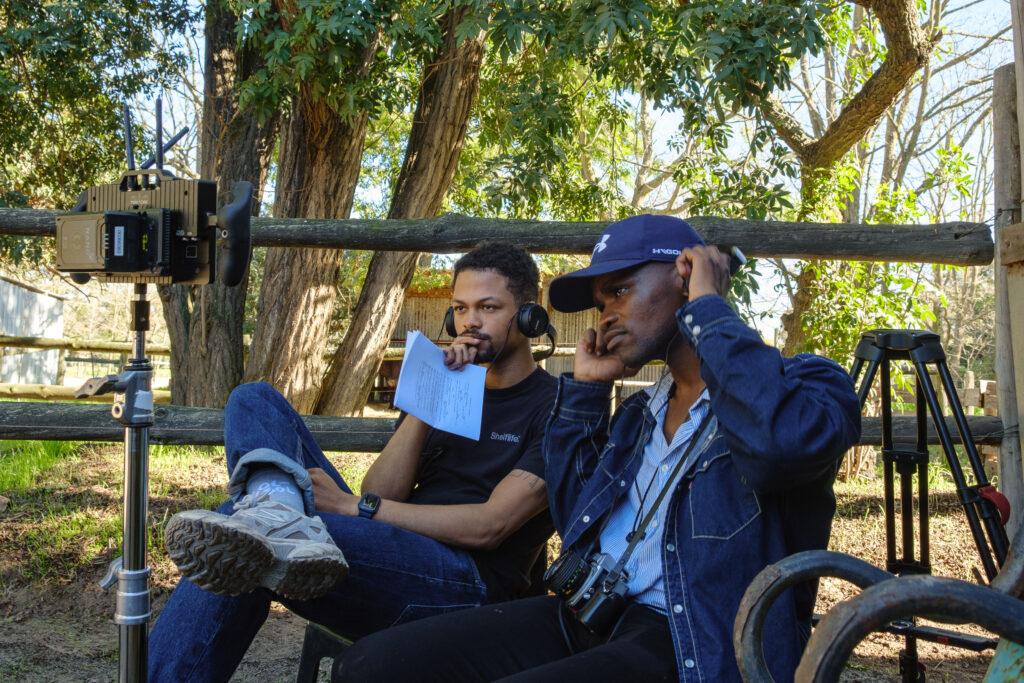
10and5: Tell us a bit about your journey to this moment. A bit about who you are, where you grew up but also specifically about what the road looked like leading up to Adam.
Liyema: I was born and raised in Port Elizabeth, now Gqeberha. I only really knew the coast growing up. I went to a boys’ school for both junior and high school — the kind where we wore hats, kept our shirts tucked in, and started every morning with a “Ma’am” or “Sir.” Fast forward to varsity. I studied film and then moved to Cape Town, where I’ve been working in the film industry since 2020. Adam started as a conversation with Winford back in November 2019 at Tiger’s Milk, Claremont, just before Covid shook things up. He introduced me to the concept that day, but he’d been writing it since high school. The story had been living with him for years. So when we finally pitched it to Showmax in 2023 and it got greenlit, that’s when everything really kicked into motion.
Would you say Adam is your big break, or was there a moment before this that felt like a turning point?
For both of us, working with Showmax felt like getting handed a golden ticket, the kind of opportunity that usually comes much later. So I wouldn’t say we’ve “arrived,” but it does feel like we’ve been given a real shot, early on. Season one of what we hope will be a long, good run.
The film is in Afrikaans. What made you decide to tell this particular story in that language?
It’s really about reflecting the world around us at a certain point in time. Winford had been living with this script since high school, and Afrikaans was a natural part of that world — part of his home environment and his culture. Also, we didn’t go into it thinking, ‘we’re making an Afrikaans film.’ We just… told a story. And that’s how it sounded in parts. It naturally became a blend of two languages, English and Afrikaans.
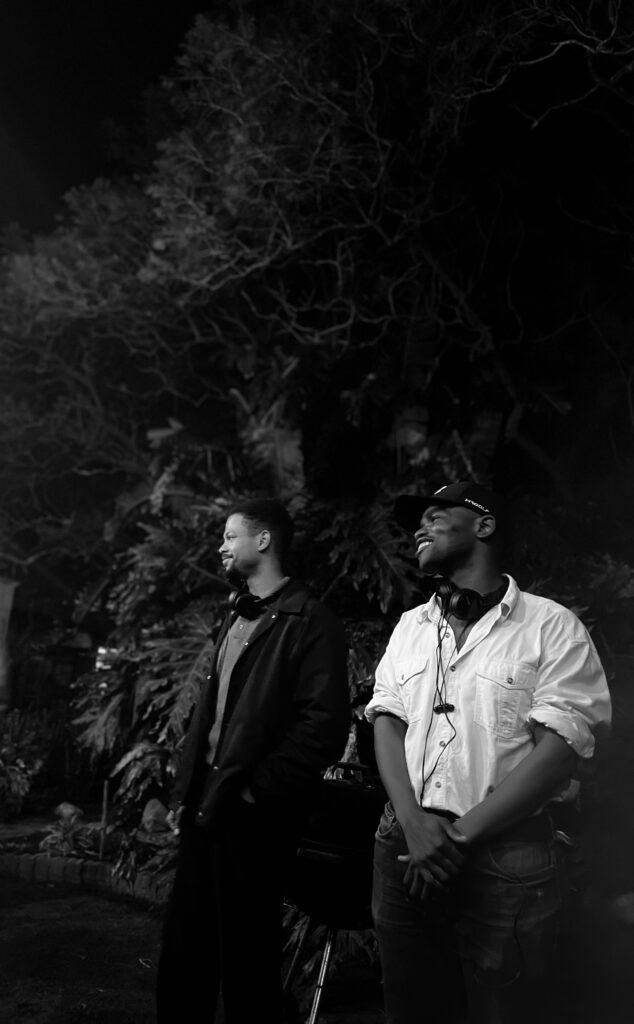
Afrikaans is often seen as racially loaded. How do you make a film containing Afrikaans feel relevant and relatable to all South Africans?
Yeah, we’re aware of the history. You grow up here, you can’t not feel the weight some languages carry. But with Adam, Afrikaans wasn’t something we used to make a point. It was just honest. It was true to that environment, to Winford’s upbringing, to the way things sound and feel in those spaces. We weren’t trying to champion the language or soften it. It just made sense for the world we were building. And ultimately, the film is about all the stuff we don’t say out loud — pressure, performance, masculinity… that silence. Those things translate, no matter where you’re from or what language you speak.
Was there a conscious message about race or identity you were trying to explore, or challenge, in the film?
The film leans into a world we both know well, spaces where there’s maybe one or two kids who look like us, sometimes none. That tension was already there; we didn’t have to force it. It found its way into the story. You feel it in Liam, Dillon’s character, but also in how the world was built, not just the leads but the background too. And what’s interesting is, the film doesn’t try to solve that tension. We just wanted to hold up a mirror. Not to fix it — just to let people feel it.
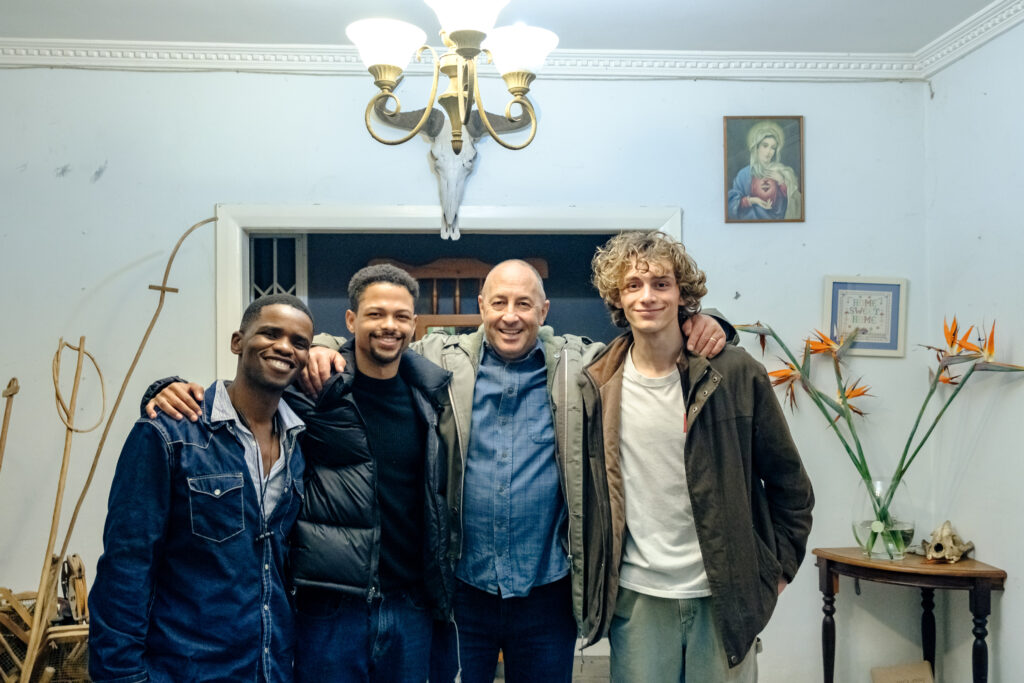
What would you say was the biggest challenge in making Adam, and how did you overcome it?
The biggest challenge was making the leap. Going from assisting others to leading. We’re so used to playing supportive roles that we start to downplay our own voice, our own ability to take the reins. But when you’re steering the ship, there’s no time to look around for permission. You have to trust yourself, make the call, and run forward. Adam taught me how to do that.
Looking back at your creative journey so far, what are some of the most valuable lessons you’ve learned?
Collaborating. That’s been the biggest lesson. Learning to set ego aside, serve the story, support the people around us, and move together toward something bigger than any one of us. But also, knowing when it’s time to make the call as a duo, to trust our guts and steer the ship.
For young creatives trying to break into film, what advice would you give?
Honestly, just go for it. Really. I remember on my first job, I was in the car with a coordinator, bright-eyed, asking a million questions, and they said something that stuck with me. In this industry, people will try give you a timeline, tell you when it’s the “right time” to move up or try something new. But the truth is, you make your own timeline. When you feel you’re ready, and you’ve studied, you jump. And if you mess it up? Cool, try again. And again. And again. And again…
What’s the core message you hope people walk away with after watching Adam?
For me, Adam is about trying to find your own way, especially when everything around you is pulling you in another direction. We’re not always given the language or the space to figure ourselves out, so we end up performing these versions of ourselves that feel safer, more acceptable. I guess the film is trying to push back against that — to sit in the mess of it all. That tension between who we are and who we’re expected to be is something I’m still trying to make sense of. But those are the stories I’m drawn to. The ones that live in the in-between, where things don’t resolve neatly. Where identity and pressure rub up against each other. It’s been on my mind a lot lately, especially as I move into new work. I’ve just started my production company, The New Bastion, and the projects we’re developing all come back to that same space: people trying to build something for themselves when there’s no blueprint.
* Stay tuned to 10and5 for the latest film and TV news.



